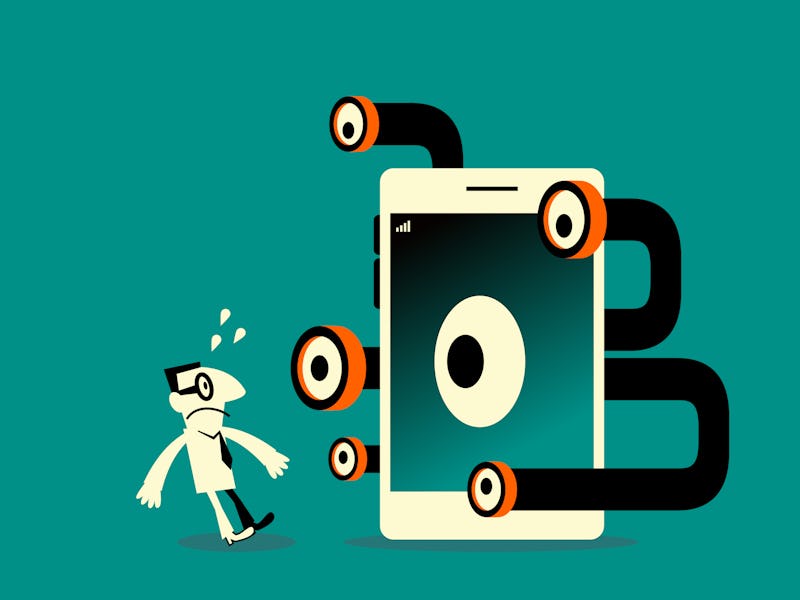Americans traded privacy for convenience, and they regret it
A new Pew survey shows Americans feeling trapped in a quandary.

Americans think privacy is dead, and they’re feeling uneasy about it. That’s according to a new Pew Research Center survey that found around 62 percent of Americans think it’s pretty much impossible to live a normal life without having data collected on you on a regular basis.
Though Americans frequently use apps and services that collect their data, around 81 percent said giving companies their information presents more risks than rewards. Another 66 percent feel uncomfortable with how much information the government is collecting on them. The worst part is that they feel completely hopeless. Over 80 percent of those surveyed said they don’t feel like they’re in control of their data, whether it’s a company or the government collecting it.
The amount of data being collected from us has increased every year. You can delete Facebook, Instagram, Twitter and a bunch of other apps and still find yourself having your data collected on a regular basis. Most of us want as much privacy as we can get—when we’re not intentionally sharing parts of our lives—but privacy is becoming increasingly hard to come by as more and more new kinds of technology become part of your lives.
Evan Greer, deputy director of the internet activist group Fight for the Future, tells Inverse that the largest tech companies are investing more and more in getting as much of our data as they can.
“The largest tech companies like Amazon, Facebook, and Google are doubling down on their surveillance-based business models,” Greer says. “We’re seeing more and more corporate data harvesting, which in turn enables even more government surveillance.”
Greer says that private companies and the government surveilling us “work hand in hand.” She says private companies create the tools and the platforms that allow the government to expand its surveillance capabilities.
“The end result is going to be more people in prison. More self-censorship. More conformity. Less creativity,” Greer says. “We’re leaving our children a world with less freedom. No one wants that.”
Rebecca Jeschke, media relations director for the Electronic Frontier Foundation, tells Inverse that though it’s difficult to maintain your privacy these days, it’s crucial and should be made easier.
“It would be a terrible mistake to give up on privacy, and it would be just what marketers and the government want. I agree that it’s exhausting right now,” Jeschke says. “But the conclusion here is not that we should give up but that it should not be this hard. It doesn’t have to be. We can and should demand privacy protections from hardware and software developers that are clear and easy to understand. We should not have to give up the cool new tools of the future in order to protect our privacy.”
See also: If You’re Serious About Online Privacy, You Need a VPN
The companies behind the devices we use can and should make protecting our privacy easier. Companies like Apple deserve some credit in this arena, as it has fought to make sure there are no backdoors to get past the iPhone’s encryption, which has been frustrating for the U.S. government. If we want our privacy back, we’ll have to demand it, and the best companies will do what the consumers want them to do.
“Privacy isn’t about what you have to hide. It’s about your ability to be yourself. Without privacy, we can’t advance as a human civilization,” Greer says. “We need spaces that are free from government and societal intrusion in order to evolve, test social norms, and rebel against authoritarian structures. Without privacy there is no democracy or free speech.”